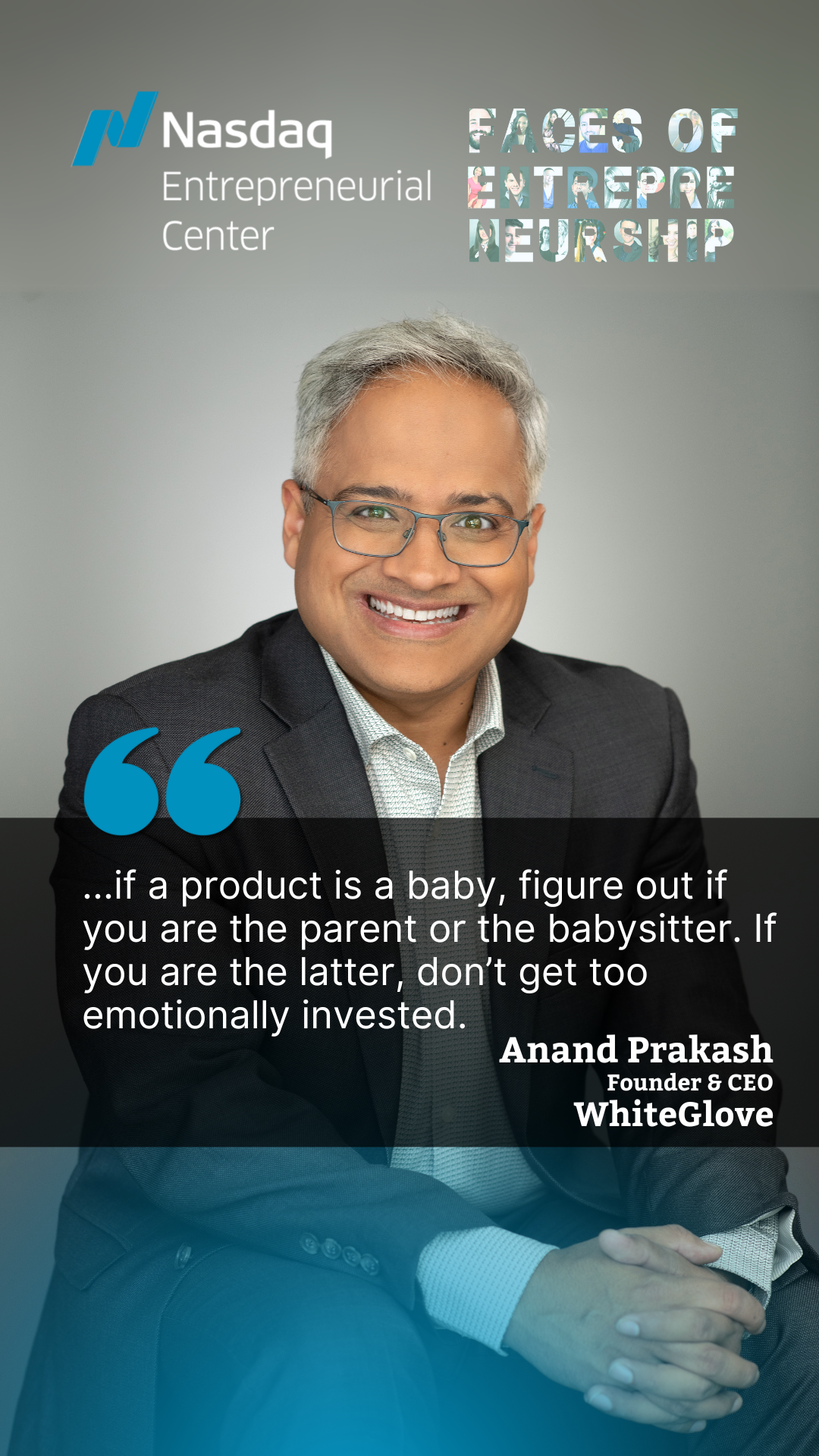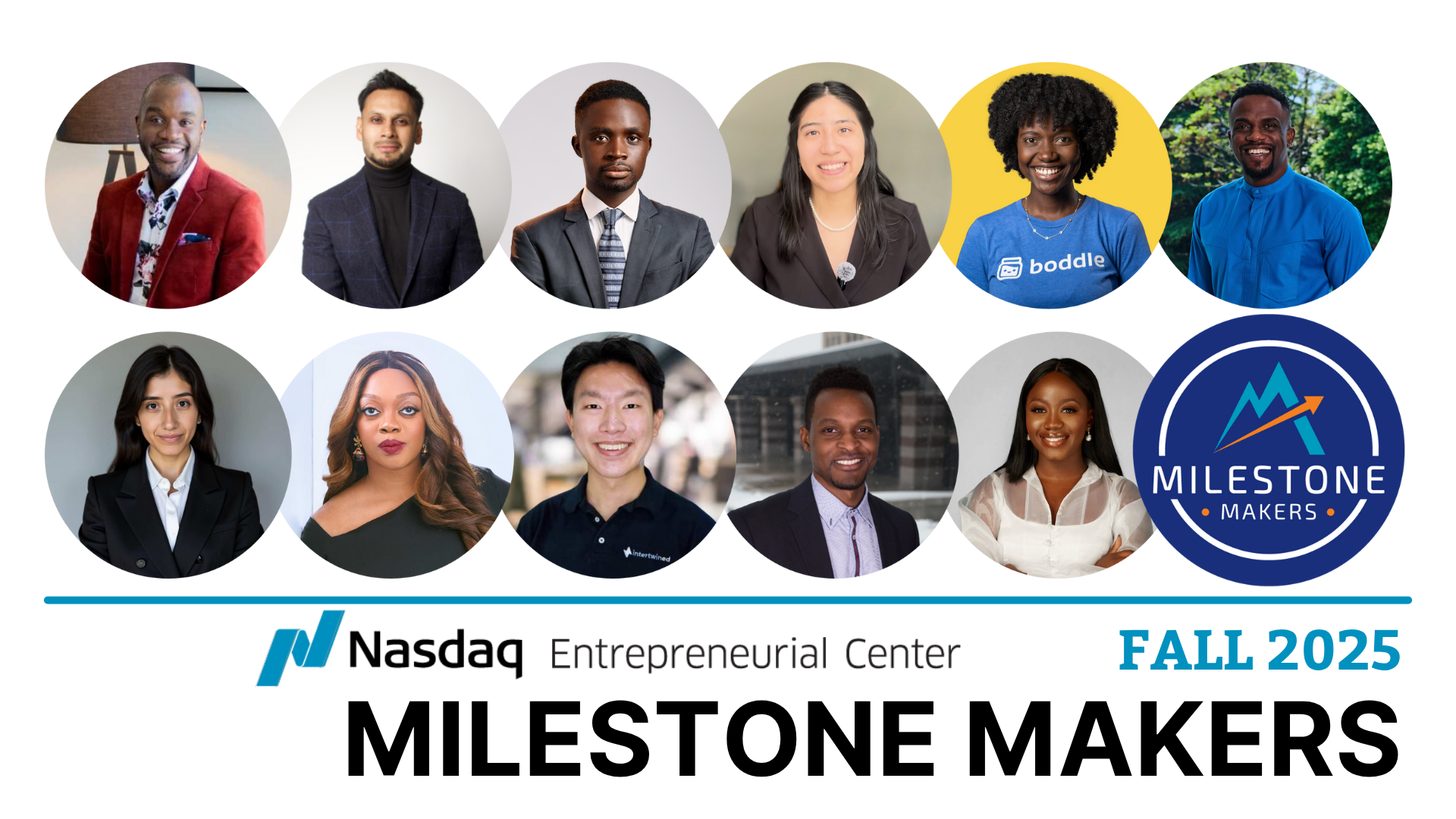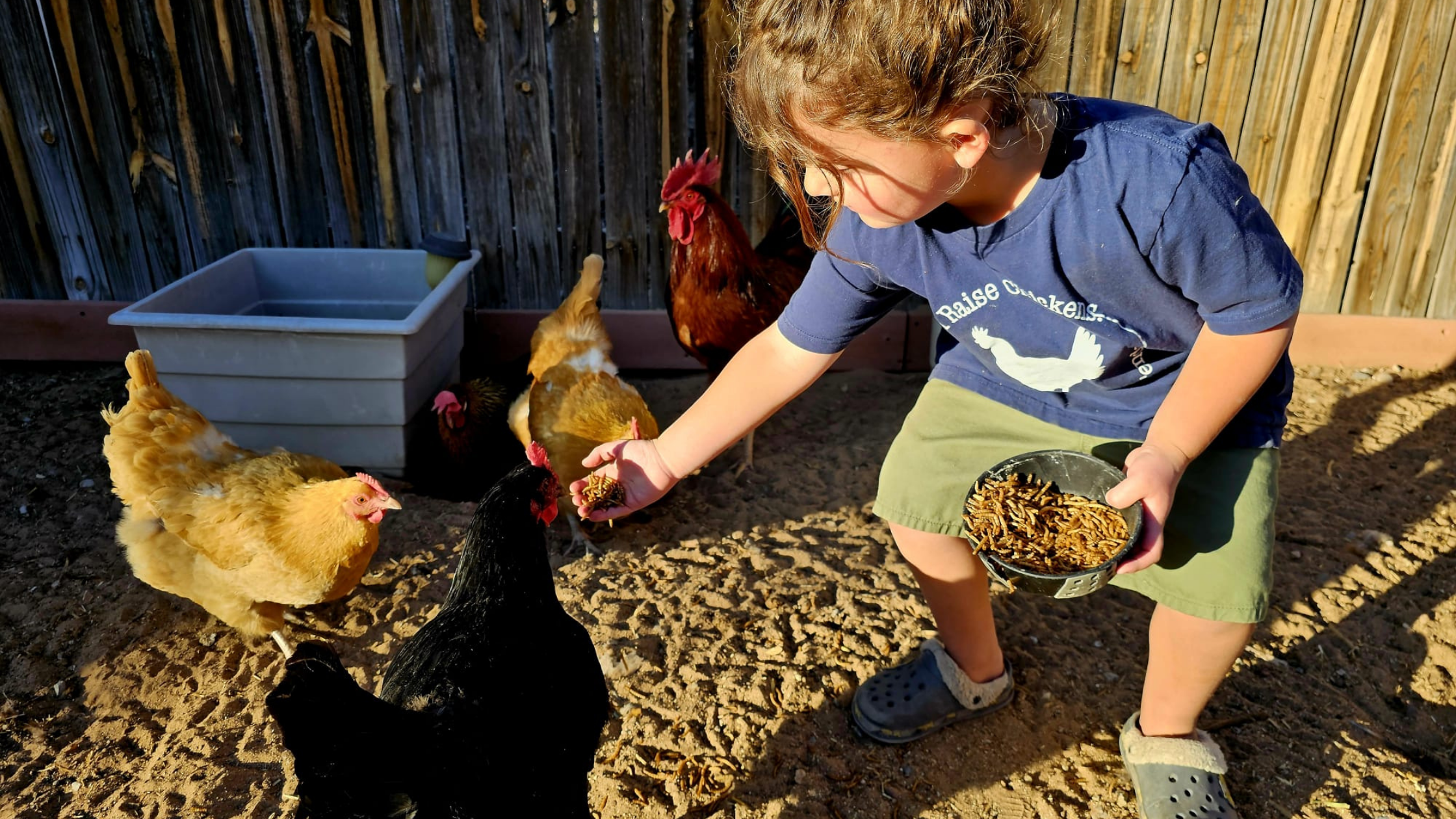Anand Prakash is a serial entrepreneur with a remarkable track record of building innovative solutions that transform industries and lives. As the founder and CEO of WhiteGlove, Anand is addressing a deeply personal and global challenge: providing seamless healthcare support for families managing the care of loved ones abroad. WhiteGlove pairs cutting-edge AI technology with dedicated telehealth services to create a concierge solution that simplifies complex healthcare logistics, bridging the gap for families separated by continents.
Before WhiteGlove, Anand left his mark on the tech world as the founding engineer and chief architect of GupShup, India’s leading enterprise communications platform, and as the founder of Droptalk, a messaging platform acquired by Dropbox. Most recently, he launched Taskrun.ai, an AI-driven personalized messaging platform. Each venture underscores his passion for innovation, problem-solving, and making meaningful contributions to humanity.
Driven by a desire to honor traditions while embracing modern solutions, Anand’s vision for WhiteGlove is rooted in his experiences and a cultural emphasis on elder care. His journey highlights the power of entrepreneurship to create systems that not only solve problems but also strengthen connections across borders.
In this Faces of Entrepreneurship interview, Anand shares his insights on resilience, mentorship, and the pursuit of a bold dream: to move humanity forward through technology and compassion.
What does “entrepreneurship” mean to you?
 Anand Prakash: Entrepreneurship means doing something that no one has done before. It means using all of your time, energy, focus, and resources to make the world a better place.
Anand Prakash: Entrepreneurship means doing something that no one has done before. It means using all of your time, energy, focus, and resources to make the world a better place.
Tell us about your first experience with entrepreneurship.
AP: My first experience with entrepreneurship was at Gupshup. I worked on a team made up of the smartest people I have ever worked with. We would work insane hours trying to solve a very difficult problem, but we were not getting anywhere due to the inherent issues with the product idea. While I really enjoyed working with that team and didn’t want to leave it, I wanted to do something that could have a positive impact.
Out of the limited free time I had, I started working on different ideas. My first seven ideas failed miserably, but the eighth idea was SMS Gupshup, a social network that worked over text messages. I built it over a weekend, and within a week, we had more than a thousand users; 100,000 users in a few months and millions of users within a year. Gupshup connected people across geographies and made people feel closer in today’s disconnected world.
What is your company’s origin story? What is the biggest reason you started your business? What did those early days look like and teach you?
AP: My latest company is WhiteGlove. The idea started around the turn of the century when I lost both my grandmother and uncle to preventable health issues. Over time, I saw many instances where the system led patients toward treatments that weren’t right for them. This only strengthened my resolve to improve healthcare in India.
I came upon a plan, which involved having the financial independence, relevant skills, and network to be able to do justice to the problem. It has been 20 years in the making, but I am excited to be able to finally work on this problem. Advent of LLMs has been the icing on the cake. LLM support can make WhiteGlove turbocharge the support we can provide to our patients.
The biggest challenge with the early days is that within the span of a day, you will experience the highs and lows of your emotions. For a moment, you might feel that you are going to revolutionize the work, and in another moment, you might feel that everything is falling apart. It takes a lot of dedication and belief in the mission to work through that and turn an idea into a product and a viable business.
What do you wish you knew when you started? Is there anything you would do differently?
AP: My entrepreneurial journey started with falling in love with an idea. When I started executing, I found that as you develop the idea, it evolves and sometimes morphs into something adjacent. The idea is in a space that allows this flexibility—you can adapt things as they turn from an idea into a product. So, my first learning was to fall in love with a space, not an idea.
Once I had built a product that would be valuable to users, I would find that I didn’t have a good way to reach them, or in some cases, the user base was very small. So, I learned that I should figure out my Go-to-Market (GTM) strategy before I started building the product.
Before I start building a product, I first make sure that I have something useful. I have identified a significant user base and also found a way to market to them. Depending on the product, I have a list of 50 to 500 consumers with whom the product has been validated and is ready to go upon launch.
What does “success” look like for you? We’d love to hear your biggest, boldest dream. What do you think will help you achieve it?
AP: For me, “success” is defined as something that moves humanity forward. Examples of this could be either making humans live longer and healthier or allowing better sharing and collaboration of ideas. This has been a common theme throughout my entrepreneurial journey, including Gupshup, Droptalk, and 42Papers.
My biggest and boldest dream is to see if we can help humans live a healthy life forever. Imagine the world if Einstein, Ramanujam, or Steve Jobs had lived for 50 more years. They could have changed the world we are living in. Humans spend a better part of the first four decades of their lives getting into a position where they can have a significant impact on the world, but it also coincides with a downward trend in health starting in the 40s. If we can delay this by even 20 years, the compounded effort of this could exponentially increase the progress of humanity.
What is your superpower as an entrepreneur? What is your proudest and darkest moment so far?
AP: My superpower is not needing a plan B. I started with engineering and every two years I would go deep in a different function. Over time I was able to gain significant experience in DevOps, Product, Design, Sales, Marketing, and Customer Service. This helps me get into other people’s shoes, understand their viewpoints, resolve cross-functional issues, and anticipate problems earlier. It also helps me drill into the details of any function while maintaining a bird’s eye view of the business. All of this together helps me obtain success on my first attempt.
My proudest moment was obtaining the first 100 users of Gupshup. I could see how passionate these early users were and their continuous raving about the product at the early unpolished stage led me to believe that we had something special in our hands.
My darkest moment was when a product that I had built from scratch was mismanaged due to bad leadership choices. I was a minority stakeholder in the company and I couldn’t do anything about it. After witnessing the mismanagement for some time, I decided to move on from the company. It was like a bad breakup and took me some time to move on. The company eventually did fine, but it is a fraction of what it could have been. My learning from this was a realization that if a product is a baby, figure out if you are the parent or the babysitter. If you are the latter, don’t get too emotionally invested.
What are your personal driving principles and your top values?
AP: My personal driving principle is to work towards the greater good. As long as your driving principle is to make the world a better place, things will fall into place. You will learn along the way and make some wonderful partners in this journey.
How have your personal principles and values shaped your company’s values and principles?
AP: Employees are the most important part of the company, and the kind of team you build can make or break your company. To be successful, people should believe in the vision, and the job should be aligned in the long term with the employee’s life goals.
When I hire, I look for passionate people who want to have an impact on the world. Once I have identified such people, my first question in the interview is to ask them what their five-year goal is and how I can help them achieve it. People are taken aback by this because they are used to adversarial relations between the interviewer and the interviewee.
We sometimes spend hours working on their 5-year life goal and determining how the role in the company can help them achieve it. In the process, we identify gaps and intermediate goals. If I feel that my company is not the best fit for them, I help them connect to other opportunities outside my company. This has led to trust, alignment, and long-term relationships!
What’s it like to work alone or with your partners?
AP: Nothing beats working with qualified partners with complementary skills, whom you trust. However, it is better to work alone, rather than working with a bad partner. So, while founders should look for great partners on their entrepreneurial journey, they should make sure about fit and compatibility before getting partners on board.
What role does mentorship play in your world (as a mentor or mentee)? Tell us about what makes mentorship valuable to you and your business.
AP: I saw a great image somewhere that showed people’s learning from theory vs. practice vs. mistakes. Each of these stages leads to 10x the learnings vs. the previous stage. Mentors are people who have had a lot of life experiences and are learning from their mistakes. Having them around could be incredibly helpful in the earlier stages of the entrepreneurial journey, where they could help avoid mistakes and dramatically improve the chances of success.
Can you share some insights into the market or industry you operate in? How have you navigated challenges and changes in the market landscape?
AP: My latest project is in the healthcare sector. This is a highly regulated industry with multiple moving parts. We believe that we are at the cusp of a revolution where at-home testing and targeted treatments can dramatically improve the quality of life.
Right now, healthcare is done on a very ad hoc basis, with no plan, accountability, or focus on outcomes. We want to change that with WhiteGlove, where we will have a dedicated team that will build and manage your health roadmap. It will make sure that you get the best healthcare for your money, with a huge focus on preventative healthcare.
Many entrepreneurs continue to perfect their daily routines to support their work and greater vision; would you mind sharing your morning routine or a regular ritual that grounds your work each day?
AP: The first thing I do after getting up is 20 minutes of meditation and 40 minutes of exercise. This helps my mind and body prepare for the day.
As I start my workday, I spend 15 minutes reviewing what I planned for yesterday, what I could get done, and what got missed. I try to think of changes that could have helped me achieve all the goals.
Then, I spend 15 minutes devising a plan for today. Afterward, I spend the rest of the day reviewing my tasks.
I keep meetings to a minimum. For any meeting, I want an agenda to be sent upfront, along with objectives and expected outcomes and why we need to do this over a meeting instead of an email.
How do you manage the work-life balance as an entrepreneur? What strategies have you found effective in maintaining your well-being?
AP: I fundamentally believe that we are all capable of achieving a lot more than what we are currently doing. I set goals on both work and personal fronts and work hard to achieve them within my own time.
I spend most of my evenings with my family. I want my kids to be future world leaders, and I believe that parent involvement is very important for their long-term well-being and emotional state. With my long-term outlook towards life, every minute I spend with them is an investment in them and their future contributions to the world. I am happy to find a balance between time and work, which leads to an optimal outcome on both fronts.
Where do you turn for inspiration?
AP: My biggest inspiration is my parents. We grew up very poor in one of the most underdeveloped parts of India. My dad studied undergrad while working, and my mom could only study until grade 8 before she had to give up studies to take care of her siblings and eventually get married. Both my parents didn’t know English.
My parents decided that they wanted to give their kids a better life through education. So my dad used to work next to a furnace all day in very hot weather, come home in the evening, study English, and then teach us. We used to get power only for a few hours in the whole week. My dad, my three siblings, and I used to sit around a kerosene lamp and study every evening.
My parents got married very early, didn’t have much education and didn’t have much exposure or financial resources or opportunities. They helped me and my three siblings get an amazing education against all odds. They are my biggest inspiration.
Building and sustaining a business often involves overcoming various challenges. Can you share a specific moment where your entrepreneurial resilience was tested, and how did you navigate through it to ensure the sustainability of your business? What lessons did you learn from that experience?
AP: The last time one of my businesses had an existential crisis was at Gupshup. Our consumer product was costing us more than a million dollars every month, and we were struggling to monetize it. During that time, we found an opportunity to offer an enterprise offering based on our infrastructure. Once we identified the opportunity, we quickly built that product and started offering it to customers. This extended our runway and made us viable as a company. Eventually, this helped Gupshup be valued at more than a billion dollars.
My biggest lesson here was that it is most important to be financially viable, and all options should be considered to make it happen.
Do you have a favorite quote, mantra, or words of wisdom to get through the tough days?
AP: Startup isn’t a marathon, and it isn’t a sprint. It is a series of sprints. You identify opportunities, plan and execute well, measure success, learn, and iterate again. You need to power through in spurts, but if you are sprinting all the time, you will burn out. Sometimes, you need to stop, evaluate, and completely change your strategy.
What is a problem that keeps you up at night?
AP: How do we get more customers? Many times, the product is amazing, and customers might love it. However, if you don’t have a good distribution plan, it can all go to waste!
How do you think about helping others through your work?
AP: A great company would have a positive impact on every key player, including customers, employees, and partners. I make sure that my companies are aligned with the long-term goals of all key players.
One of my first interview questions is asking about people’s 5-year plan and how we can get them there. I hire an employee only if we are aligned on the employee’s 5-year plan.
What advice do you have for fellow (and aspiring) entrepreneurs building and leading teams?
AP: First and foremost, introspect deeply to find out the real motivator for doing a startup. The life of an entrepreneur is tough and the odds of success are really low. Let the financial rewards and glory be the side effect. Let the primary reason be a deep conviction about a problem while having an innate drive to solve that problem.
Make sure that your family and financial situation are aligned with your goals so that there are no unexpected surprises.
What kind of an entrepreneur do you want to be known as – as in, what do you want your legacy to be?
AP: I want to be remembered as someone who made a lasting impact on humanity. Our civilization is a small blip in the universe’s timeline. It is said that once all the stars are gone, the universe will be stuck in eternal darkness. Quite possibly, humanity might be the only shot at preventing that, and I want to make sure I do everything to ensure humanity can keep making further leaps of progress.
Do you have someone you’d like to nominate to be profiled in our Faces of Entrepreneurship series? Please let us know by emailing media@thecenter.nasdaq.org or submitting your nomination using this form.




